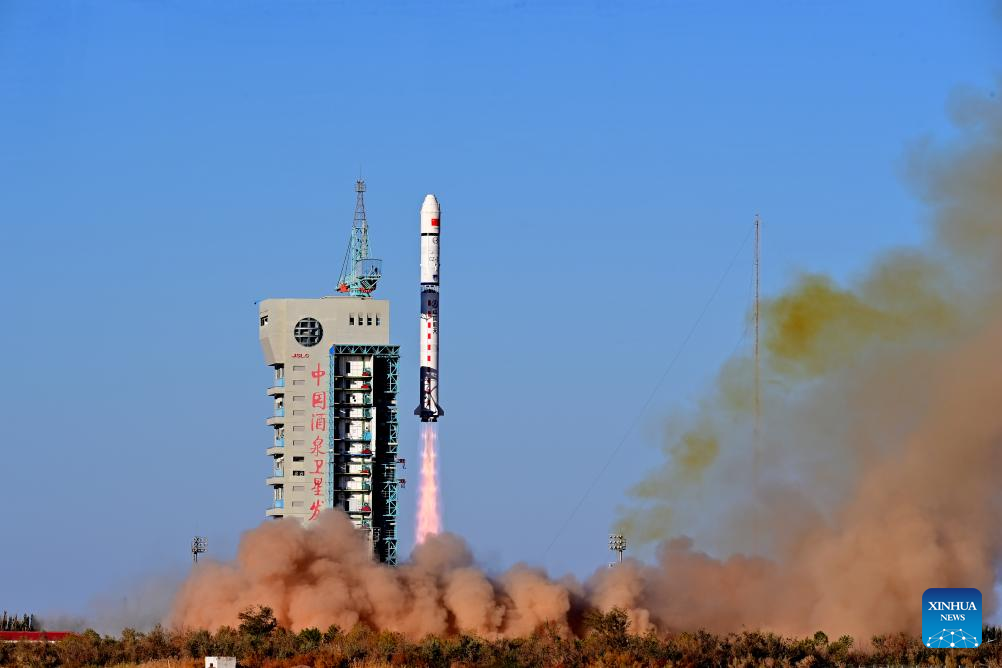
A Long March-2D carrier rocket carrying the Coded Yunhai-1 04 blasts off from the Jiuquan Satellite Launch Center in northwest China on Oct. 15, 2023. Coded Yunhai-1 04, the satellite was lifted at 8: 54 a.m. (Beijing Time) from the Jiuquan Satellite Launch Center in northwest China and soon entered the preset orbit.
It will provide services for the detection of the atmospheric, marine and space environments, disaster prevention and mitigation, and scientific experiments.
The launch marked the 491st mission for the Long March rocket family, said the launch center. (Photo by Wang Jiangbo/Xinhua)
JIUQUAN, Oct. 15 (Xinhua) -- China on Sunday launched a Long March-2D rocket placing a new Earth-observing satellite into space.
Coded Yunhai-1 04, the satellite was lifted at 8: 54 a.m. (Beijing Time) from the Jiuquan Satellite Launch Center in northwest China and soon entered the preset orbit.
It will provide services for the detection of the atmospheric, marine and space environments, disaster prevention and mitigation, and scientific experiments.
The launch marked the 491st mission for the Long March rocket family, said the launch center. ■
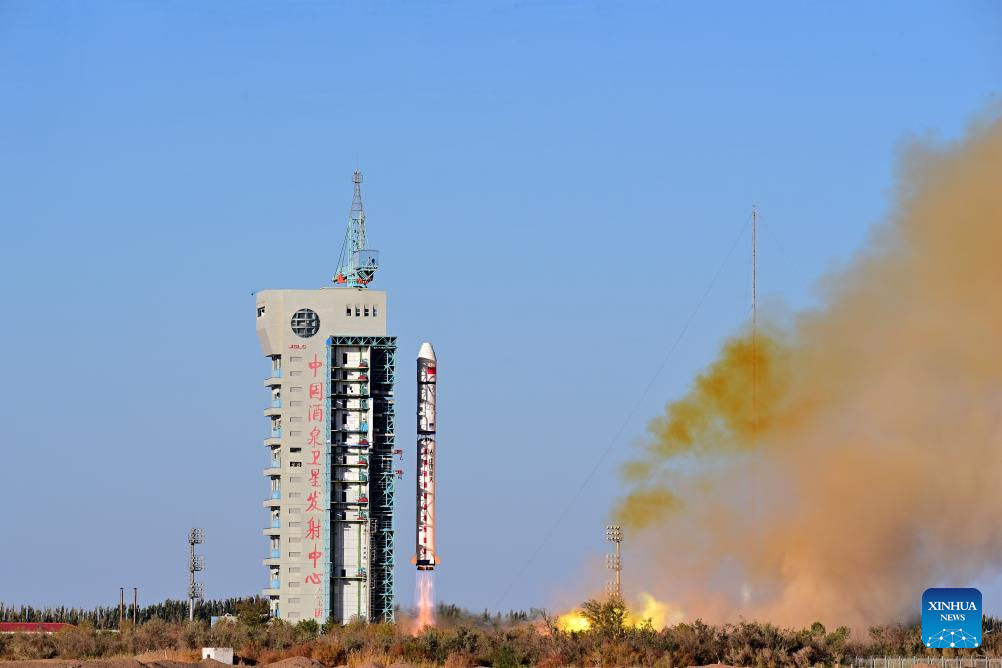
A Long March-2D carrier rocket carrying the Coded Yunhai-1 04 blasts off from the Jiuquan Satellite Launch Center in northwest China on Oct. 15, 2023. Coded Yunhai-1 04, the satellite was lifted at 8: 54 a.m. (Beijing Time) from the Jiuquan Satellite Launch Center in northwest China and soon entered the preset orbit.
It will provide services for the detection of the atmospheric, marine and space environments, disaster prevention and mitigation, and scientific experiments.
The launch marked the 491st mission for the Long March rocket family, said the launch center. (Photo by Wang Jiangbo/Xinhua)
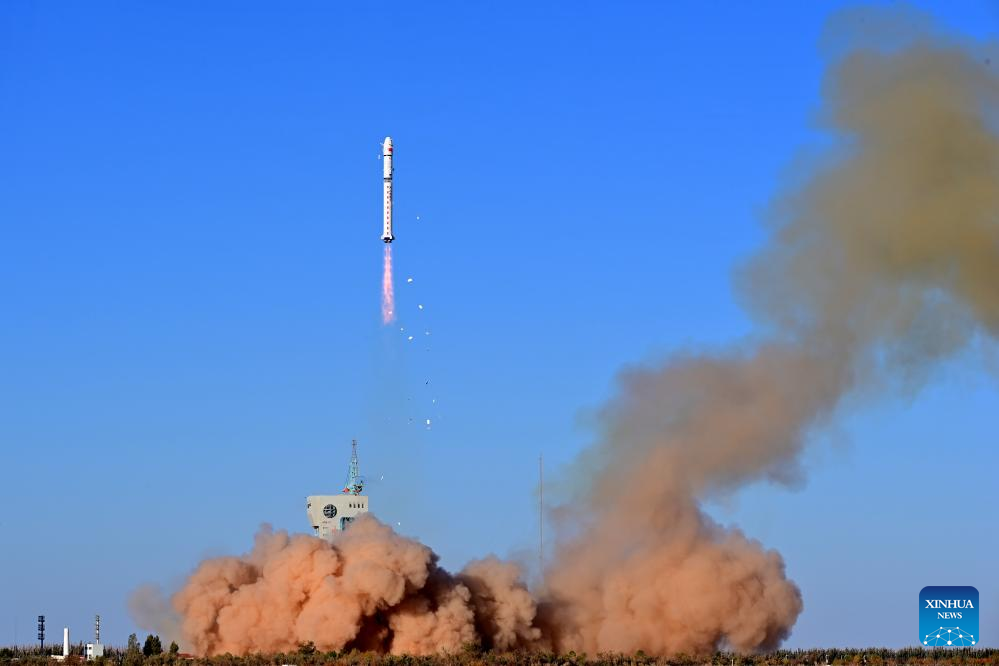
A Long March-2D carrier rocket carrying the Coded Yunhai-1 04 blasts off from the Jiuquan Satellite Launch Center in northwest China on Oct. 15, 2023. Coded Yunhai-1 04, the satellite was lifted at 8: 54 a.m. (Beijing Time) from the Jiuquan Satellite Launch Center in northwest China and soon entered the preset orbit.
It will provide services for the detection of the atmospheric, marine and space environments, disaster prevention and mitigation, and scientific experiments.
The launch marked the 491st mission for the Long March rocket family, said the launch center. (Photo by Wang Jiangbo/Xinhua)
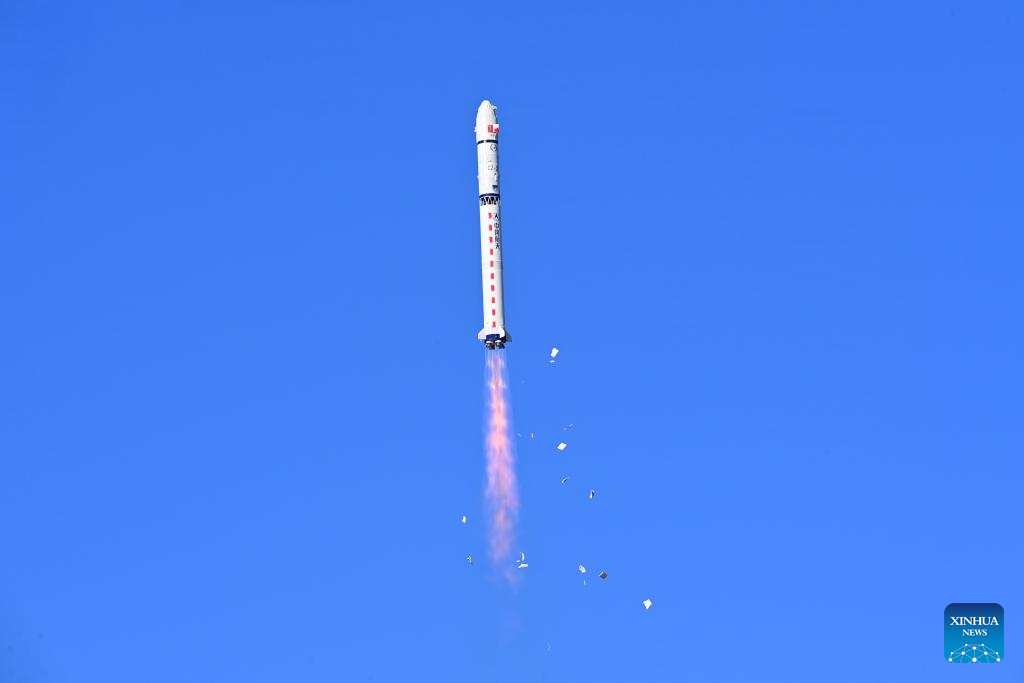
A Long March-2D carrier rocket carrying the Coded Yunhai-1 04 blasts off from the Jiuquan Satellite Launch Center in northwest China on Oct. 15, 2023. Coded Yunhai-1 04, the satellite was lifted at 8: 54 a.m. (Beijing Time) from the Jiuquan Satellite Launch Center in northwest China and soon entered the preset orbit.
It will provide services for the detection of the atmospheric, marine and space environments, disaster prevention and mitigation, and scientific experiments.
The launch marked the 491st mission for the Long March rocket family, said the launch center. (Photo by Wang Jiangbo/Xinhua)
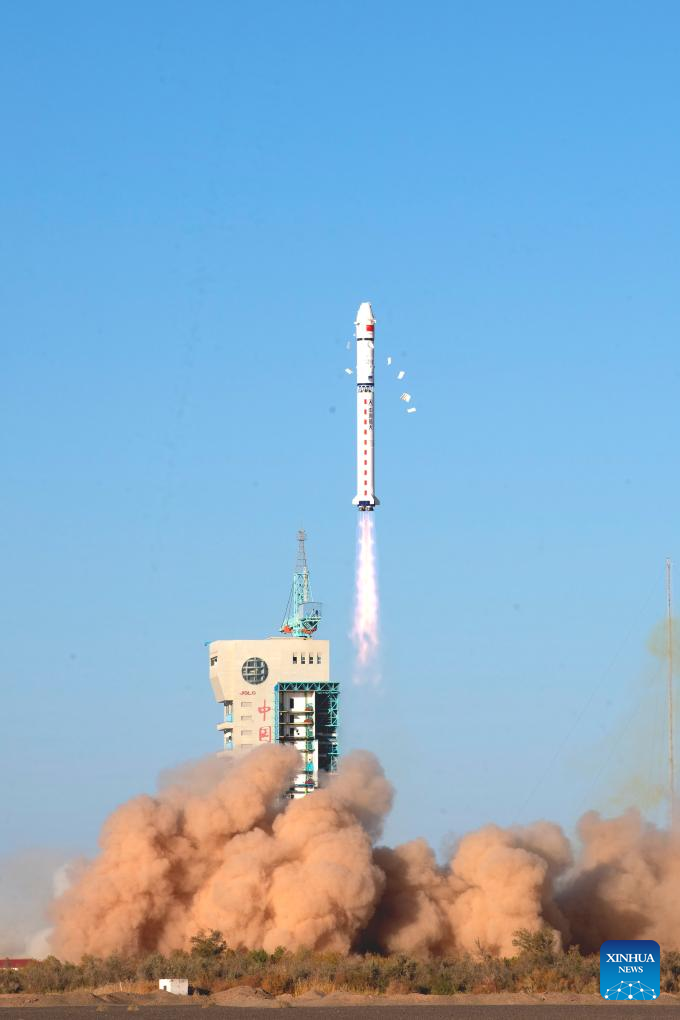
A Long March-2D carrier rocket carrying the Coded Yunhai-1 04 blasts off from the Jiuquan Satellite Launch Center in northwest China on Oct. 15, 2023. Coded Yunhai-1 04, the satellite was lifted at 8: 54 a.m. (Beijing Time) from the Jiuquan Satellite Launch Center in northwest China and soon entered the preset orbit.
It will provide services for the detection of the atmospheric, marine and space environments, disaster prevention and mitigation, and scientific experiments.
The launch marked the 491st mission for the Long March rocket family, said the launch center. (Photo by Wang Jiangbo/Xinhua)
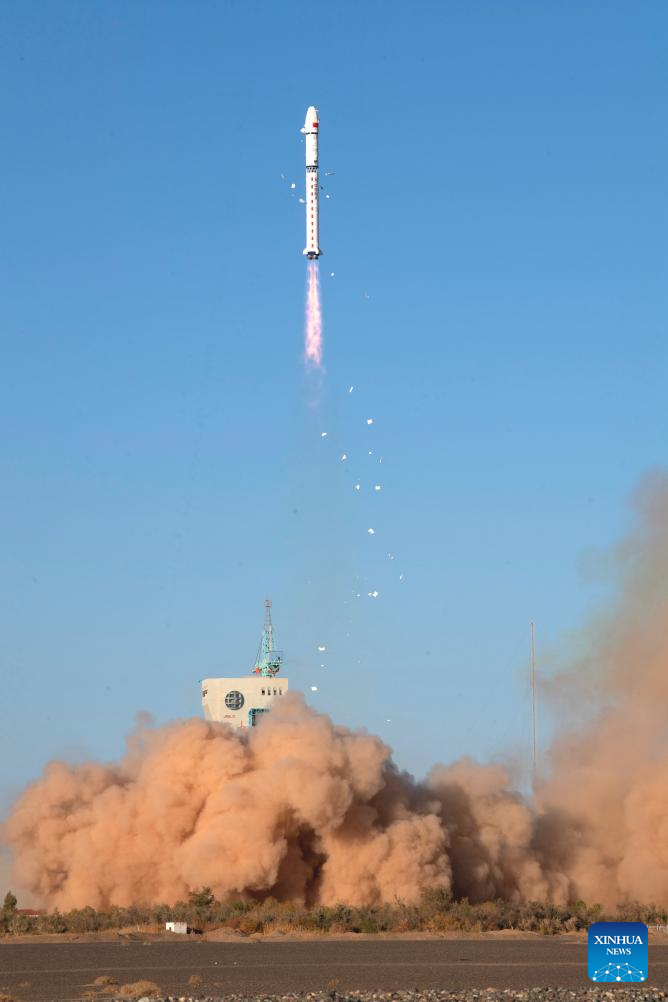
A Long March-2D carrier rocket carrying the Coded Yunhai-1 04 blasts off from the Jiuquan Satellite Launch Center in northwest China on Oct. 15, 2023. Coded Yunhai-1 04, the satellite was lifted at 8: 54 a.m. (Beijing Time) from the Jiuquan Satellite Launch Center in northwest China and soon entered the preset orbit.
It will provide services for the detection of the atmospheric, marine and space environments, disaster prevention and mitigation, and scientific experiments.
The launch marked the 491st mission for the Long March rocket family, said the launch center. (Photo by Wang Jiangbo/Xinhua)



